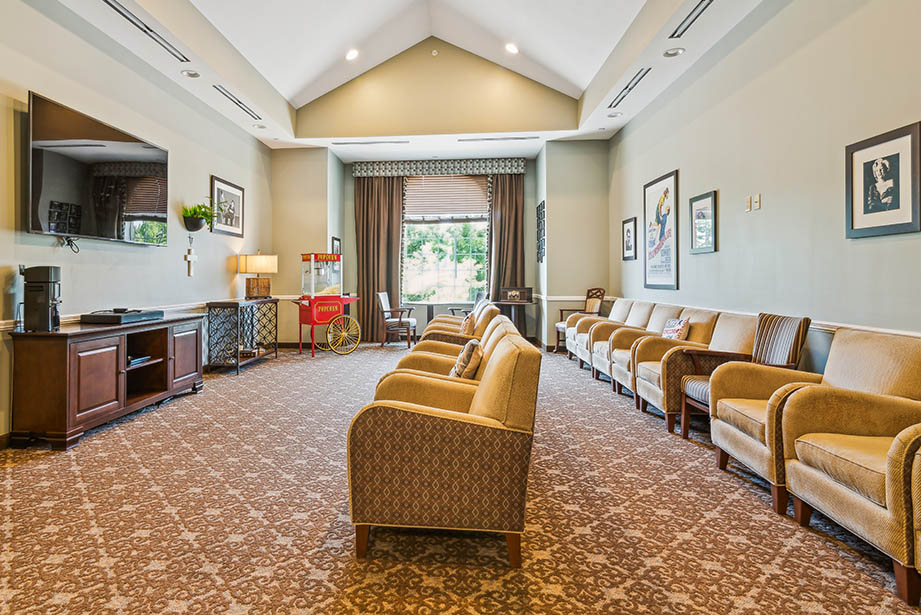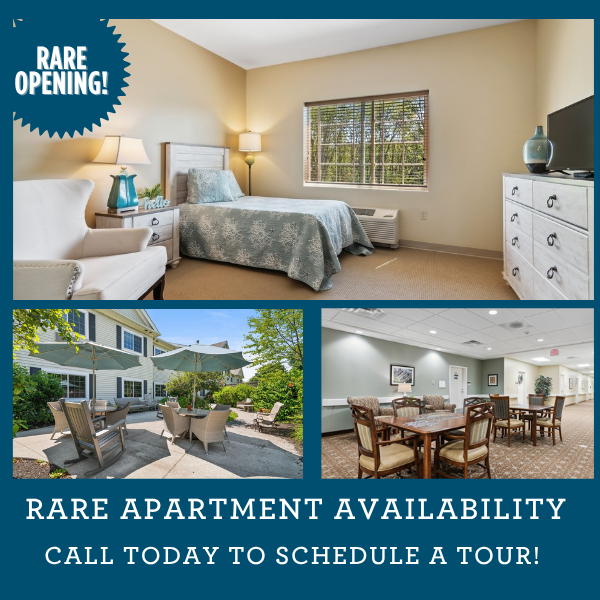As your loved one ages, their needs may change. Recognizing when it’s time to transition from assisted living to specialized memory care can be important for their well-being.
Here are some signs that may indicate it’s time for a change in their lifestyle:
- Safety concerns, such as wandering, getting lost, or unexplained falls
- Difficulty with daily living, like bathing, dressing, or eating
- Behavioral changes, like agitation, aggression, or withdrawal
- Increased need for supervision
- Caregiver burnout, feeling overwhelmed or unable to care for their needs
If you notice these signs, it may be time to explore your loved one’s memory care options.
What Is Assisted Living?
Assisted living is a type of senior living community that helps with daily activities, such as bathing, dressing, and medication management. Residents typically have their own private apartments or rooms and can receive personalized care based on their individual needs.
Assisted living is an excellent option for those who want to maintain their independence but need help with certain daily tasks. It provides necessary support while still promoting autonomy.
A few other common ways associates assist with daily activities include:
- Assistance with bathing and dressing as needed
- Help getting in and out of bed
- Help getting to meals and other activities
- Additional assistance at mealtime if needed
- Discreet personal care whenever needed
What Is Memory Care?
Memory care is a specialized type of senior living community designed to provide a safe and supportive environment for individuals with dementia or cognitive impairments. Residents receive 24/7 supervision, specialized programming, and personalized care tailored to their unique needs.
Memory care communities often feature secure outdoor spaces, specialized activities, and trained staff who understand the challenges of dementia and can provide appropriate support.
This type of care is ideal for those with cognitive decline who require a higher level of assistance and supervision.
Some features of memory care include:
- Daily on-site support of trained staff
- Nutrition management
- One-on-one social time
- Additional daily assistance
- Science-backed emotional support
- Family-centered consultations
Signs It’s Time to Consider a Transition Between Senior Lifestyles
Recognizing when it’s time to move from assisted living to memory care is crucial for the well-being of your loved one. Here are some signs to look for:
- Increased memory loss and confusion: If you notice a significant decline in memory, such as forgetting important dates, names, or places, it might be time to consider memory care.
- Wandering and safety concerns: Memory care communities usually have security measures to prevent wandering, a common behavior in individuals with advanced dementia.
- Difficulty with daily activities: Specialized care can provide the necessary support when basic tasks such as dressing, bathing, and eating become increasingly challenging.
- Behavioral changes: Staff is typically trained in de-escalation techniques and therapeutic interventions in memory care, so they’re better qualified to manage agitation, aggressive behavior, or mood swings.
- Health decline: A noticeable decline in physical health due to poor nutrition, medication mismanagement, or neglect of personal care is a strong indicator that memory care may be necessary
Benefits of Early Transition & Addressing Common Concerns
Memory care offers significant benefits, including:
- A fulfilling lifestyle: Memory care communities offer structured routines and engaging activities that can help provide an enjoyable lifestyle.
- Specialized care: Staff members are trained to address the unique needs of those with memory loss, providing compassionate and effective care.
- Safety and security: Families can have peace of mind knowing their loved ones are safe with 24/7 supervision and secure environments.
- Social interaction: Memory care communities typically encourage socialization, which can help reduce feelings of isolation and depression.
Common Concerns About Memory Care
Families often have concerns about transitioning to memory care. It’s essential to discuss these openly:
- Emotional adjustment: Worrying about how your loved one will adapt is natural. Memory care staff are skilled in easing transitions and helping new residents feel at home.
- Financial considerations: To make the transition more manageable, explore all available financial options, including insurance coverage and potential benefits.
- Guilt and hesitation: Choosing memory care is about ensuring the highest quality of life for your loved one. It’s a compassionate step towards providing the care they need.
Importance of Personalized Care for Those with Memory Loss
Transitioning from assisted living to memory care can be challenging. The Enclave of Scarborough is an award-winning senior living community near Portland that can provide support and guidance during this process.
Don’t hesitate to reach out if you’re considering memory care for a loved one. Our team is here to answer your questions, offer personalized advice, and help you make informed decisions.
Schedule a visit today to discover our personalized senior living and comprehensive memory care services. Let us show you how our friendly and engaging community can provide a safe, comfortable, and fulfilling lifestyle for you and your loved one.









